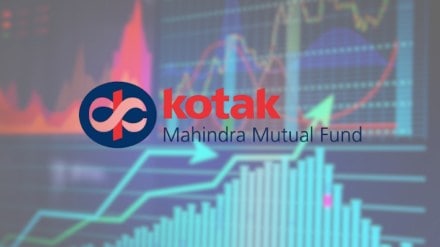Kotak Mahindra Bank, earlier this week, concluded its diligence process to acquire the government’s stake in IDBI Bank, as reported by FE earlier this year.
The due diligence process involved reviewing confidential information such as borrower data, exposure, and loan provisions to assess the bank’s financial health.
The possibility of a Kotak–IDBI merger remains a discussion point in the financial sector, though there has been no conclusive decision or official word on this. Meanwhile, a note from Jefferies set out how the financials of a potential merger would work if it were ever considered. The brokerage focused its analysis solely on the numerical outcomes under different funding structures.
Jefferies placed its modelling within a broader landscape of capital inflow into Indian financial firms.
It reported that more than $10.4 billion of strategic foreign investment is currently positioned across banks and NBFCs, with a majority coming as primary capital. The brokerage also referred to media discussions about possible banking combinations, which amount to a notional $125 billion in potential consolidation scenarios.
Jefferies’ base case scenario on Kotak Mahindra-IDBI Bank merger possibility: Share-swap option
In its base case, Jefferies modelled a share-swap acquisition at an implied purchase value of Rs 1.08 lakh crore. Under this scenario, Kotak would issue around 516 million shares, or 51.6 crore shares, which would amount to approximately 21% dilution.
According to the report, this structure would keep pro-forma return on assets near 2.1% and return on equity around 13.4%, because IDBI’s current capital base would support the merged balance sheet. Jefferies stated that this outcome arises from the share-funded nature of the scenario and the capital position reflected in IDBI’s reported numbers.
Jefferies on Kotak Mahindra-IDBI Bank merger possibility: Cash-funded scenario
Jefferies also presented scenarios involving cash.
In a 45% cash model:
• Goodwill stood at Rs 21,900 crore, and
• Annual interest cost was estimated at about Rs 3,200 crore if borrowing was assumed.
In a full-cash model, goodwill was projected around Rs 48,200 crore.
The brokerage stated these results as part of its scenario analysis and did not indicate that any specific structure is being pursued. The figures were presented to illustrate how different mixes of shares and cash would affect dilution, goodwill and interest expense.
Jefferies on Kotak Mahindra-IDBI Bank merger possibility: Operational considerations
Jefferies referred to the Kotak–ING Vysya merger of 2014 when discussing integration requirements. That deal had increased Kotak’s physical network and customer reach. The brokerage cited it as an example of the operational steps involved in combining two banking platforms, including system alignment and branch consolidation. This reference was used to highlight the nature of tasks that arise in integrations, not to compare performance.
In the Kotak–IDBI context, Jefferies noted that IDBI’s shareholder profile, primarily the government and LIC would influence the final structure of any transaction if it were to occur, as their choice of cash or equity would determine the funding mix.
Jefferies on sector-wide capital flows and their positioning
The report outlined strategic investor interest across multiple lenders such as RBL Bank, Yes Bank, Federal Bank and IDFC First Bank, in addition to several NBFCs. Jefferies stated that a large portion of the $10.4 billion pipeline represents primary capital, which would directly strengthen balance sheets if deployed.
The brokerage said these investments are positioned for technology spending, distribution expansion and product diversification. These points were presented descriptively, without indicating expected performance outcomes.
Jefferies on funding and deposits: What the report specifies
Jefferies stated that deposit behaviour can change during integrations, based on experiences observed in past banking combinations. The report noted that customer movement across products or branches could occur during system changes. It also said that funding costs could shift depending on how markets perceive the timing or structure of a merger. In the case of Kotak, the brokerage said deposit management would remain a central operational factor if any merger progresses into execution.
Jefferies highlighted three elements investors typically monitor in similar situations:
• Quantum of goodwill disclosed,
• Source of funds for any cash component, and
•Timeline for IT migration
These were presented as standard markers used to understand potential earnings effects.
Jefferies on Kotak Mahindra-IDBI Bank merger possibility: Risks
Jefferies listed several operational and regulatory risks that generally arise in banking combinations:
• Integration execution,
• Credit process disruptions,
• Depositor movement,
• Technology migration issues, and
• Changes in foreign ownership regulations.
